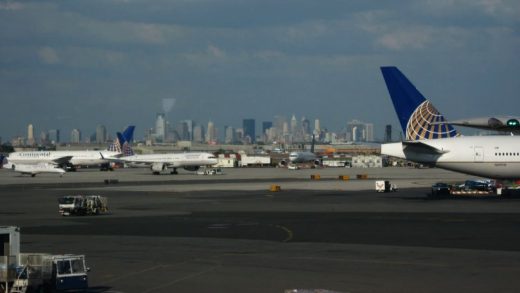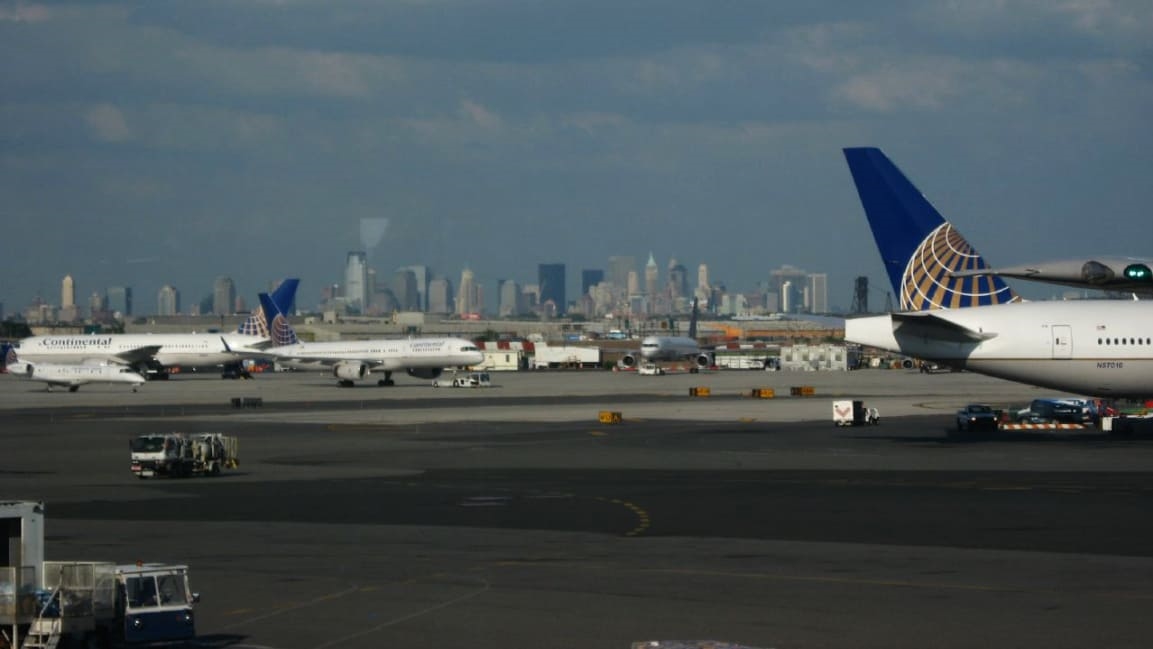A pair of drones disrupted flights to Newark Airport
A ground stop was ordered at Newark Liberty International Airport in New Jersey due to drone activity at a nearby airport, the Federal Aviation Agency said Tuesday evening.
Two drones were seen about 3,500 feet above Teterboro Airport in Bergen County, New Jersey, an aviation official told ABC News. FAA rules prohibit small drones flying above 400 feet and closer than 5 miles to airports and other sensitive areas.
While outgoing flights resumed at Newark, some flights were held at their points of departure in order to slow the pace of incoming traffic, according to the FAA. Newark is one of the New York City-Philadelphia area’s four major airports.
The airport said on Twitter shortly after 7 p.m. ET that normal operations “have resumed.”
Normal #EWR operations have resumed after arrivals were briefly held by the FAA due to reports of drone activity north of the airport earlier this evening. We’re coordinating with the FAA & fully supporting all federal law enforcement authorities as they investigate this incident
— Newark Liberty Airport (@EWRairport) January 23, 2019
The episode echoes an incident last month, when reports of drones near Gatwick Airport shut down the 2nd busiest airport in the U.K, disrupting over 1,000 flights. Earlier this month, London’s Heathrow airport had to suspend flights after drone sightings there.
On Twitter, passengers flying to Newark complained of delays.
grrr. Drones at airports are one of the suckier aspects of 2019 so far. Newark is at a ground stop from 2 drones.
— annie feighery (@AnnieFeighery) January 22, 2019
I am currently circling over Richmond, VA because some numbskull (trying to keep this PG) is flying a drone over Newark Airport. I can’t express enough how stupid I think drones are. Shoot the thing down for all I care. Jam the signal. @NBCNewYork
— Adam Cohen (@adamatic521) January 22, 2019
Just landed at Newark. Our @united flight had to circle because of stopped takeoffs and landings due to nearby drone activity. Time to come up with technology to remotely shut down these drones #EWR
— Brett Sosnik (@BrettSoz) January 22, 2019
There is technology for shutting down drones, and it’s being used at the White House, military installations, and a growing number of airports. But those anti-drone techniques aren’t perfect, and when they do exist, the regulations and authority surrounding their usage remain murky, CNBC reported this month. In the U.K. changes to drone laws came quickly after the incidents at Heathrow and Gatwick: Now British law enforcement are permitted to land, seize, and search drones, and to fine operators who fail to comply with orders to land their drones.
Last month, the FAA said it was launching a pilot program to speed up methods for remote drone identification, which is generally seen as a hurdle to the safe and widespread use of drones over the U.S. But the industry has been frustrated by progress with drone rules so far, the Wall Street Journal reported. Kenneth Quinn, a former federal regulator, told the paper last month that the FAA has been “on a very slow train to get them out and effective.”
Fast Company , Read Full Story
(23)



